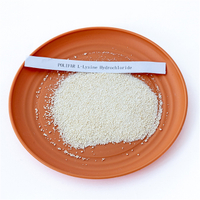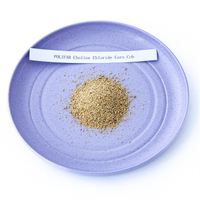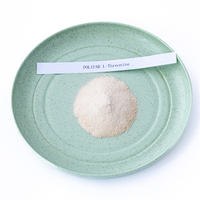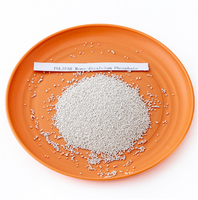Views: 0 Author: Site Editor Publish Time: 2025-05-23 Origin: Site








Vitamin E Tocopheryl Acetate is a stable, synthetic form of Vitamin E commonly used in both food and feed applications. In animal nutrition, it serves as an essential antioxidant that helps protect cells from oxidative damage, supports immune function, and promotes overall growth and health in livestock.
Compared to natural Vitamin E, Tocopheryl Acetate is more resistant to heat, light, and oxidation, making it an ideal choice for inclusion in pelleted and processed feeds. The "acetate" part refers to the esterification of tocopherol, which enhances its shelf life and stability during storage and feed processing.
Widely available in powder and oil forms, Vitamin E Tocopheryl Acetate is recognized for its effectiveness and cost-efficiency, especially in large-scale animal production systems.
Vitamin E, especially in the form of tocopheryl acetate, is a preferred choice in animal feed formulations due to its exceptional antioxidant stability and biological importance. Unlike other vitamins, Vitamin E remains stable during feed processing and storage, thanks to its esterified form, which resists degradation from heat and oxygen. This makes it highly compatible with modern feed manufacturing methods such as pelleting and extrusion.
Moreover, Vitamin E is essential across various animal species—from poultry and swine to ruminants and aquatic animals—making it a versatile additive for integrated farms or feed mills serving multiple sectors. It also contributes to better feed conversion ratios and supports overall animal performance, reducing veterinary costs in the long run. For producers aiming to meet nutritional standards or comply with regional feed regulations, Vitamin E is often a required or highly recommended inclusion.

Vitamin E, primarily used in the form of Tocopheryl Acetate, is an essential fat-soluble antioxidant that plays a vital role in animal health and production. Its supplementation in feed formulations offers a wide range of physiological and economic advantages. Below are the key benefits explained in detail:
Enhances Antioxidant Defense and Cellular Integrity
Vitamin E protects cell membranes from oxidative damage by neutralizing free radicals. This function is especially critical in high-performance animals, where metabolic activity increases oxidative stress. Adequate Vitamin E supplementation maintains the structural integrity of muscle, liver, reproductive, and immune cells, reducing the risk of tissue degeneration and metabolic disorders.
Strengthens Immune Function and Disease Resistance
Vitamin E plays a crucial role in modulating both innate and adaptive immunity. It supports the production of antibodies, enhances the function of phagocytic cells, and increases lymphocyte proliferation. As a result, animals supplemented with Vitamin E exhibit greater resistance to bacterial, viral, and parasitic infections, leading to lower morbidity and mortality rates, particularly in young or immunocompromised animals.
Improves Reproductive Performance and Fertility
Reproductive tissues are particularly sensitive to oxidative stress. Vitamin E helps stabilize reproductive hormones and supports the development and maintenance of healthy sperm and ova. In breeding animals, consistent Vitamin E intake is associated with improved fertility rates, embryo viability, and overall reproductive efficiency, making it essential for sustainable livestock reproduction.
Supports Growth, Feed Efficiency, and Product Quality
By reducing oxidative stress and supporting metabolic function, Vitamin E contributes to improved weight gain, feed conversion ratio, and nutrient absorption. Moreover, it enhances the quality and shelf life of animal products such as meat, milk, and eggs by preventing lipid oxidation, thus preserving texture, flavor, and nutritional value. In aquaculture, it also contributes to firmer flesh and better storage stability.
The appropriate dosage of Vitamin E in feed varies by species and production stage:
Poultry: 10-100 IU/kg of feed depending on age and stress levels
Swine: 40-100 IU/kg
Cattle: 100-300 IU/kg
Aquaculture: 50-200 IU/kg
Consulting with a nutritionist or veterinarian is recommended to determine the optimal dosage for specific production goals.
Vitamin E is available in both natural and synthetic forms. Natural Vitamin E (D-alpha-tocopherol) is derived from vegetable oils and has higher bioavailability. Synthetic Vitamin E (Dl-alpha-tocopheryl acetate), while more cost-effective and stable, contains both active and inactive isomers. For feed applications, synthetic forms like the 50% Vitamin E powder are commonly used due to their stability and ease of incorporation.
Choosing a reliable supplier ensures product quality, consistency, and regulatory compliance. Polifar is a trusted global supplier of feed-grade Vitamin E, offering high-quality 50% Vitamin E Tocopheryl Acetate Powder. With strict quality control and a commitment to customer satisfaction, Polifar supports livestock producers with effective nutritional solutions.
Q1: Is Vitamin E essential for all animals?
Yes, Vitamin E is a vital nutrient for all livestock and poultry species.
Q2: Can Vitamin E be combined with other vitamins?
Absolutely. It is often included in premix formulations with Vitamins A, D, and C.
Q3: What are the signs of Vitamin E deficiency?
Common symptoms include muscle weakness, poor growth, and reproductive issues.
Q4: Is synthetic Vitamin E safe?
Yes, Dl-alpha-tocopheryl acetate is widely used and considered safe in regulated amounts.
Vitamin E Tocopheryl Acetate plays a critical role in maintaining the health, immunity, and productivity of animals. Whether you're formulating feed for poultry, swine, cattle, or aquaculture, ensuring an adequate and stable supply of Vitamin E is essential. The 50% Vitamin E powder offers a practical and efficient option for animal nutrition, combining good bioavailability with ease of mixing. When choosing a supplier, trust in quality and consistency is key—Polifar stands out as a reliable partner committed to delivering high-standard feed additives that meet the needs of modern animal farming.






